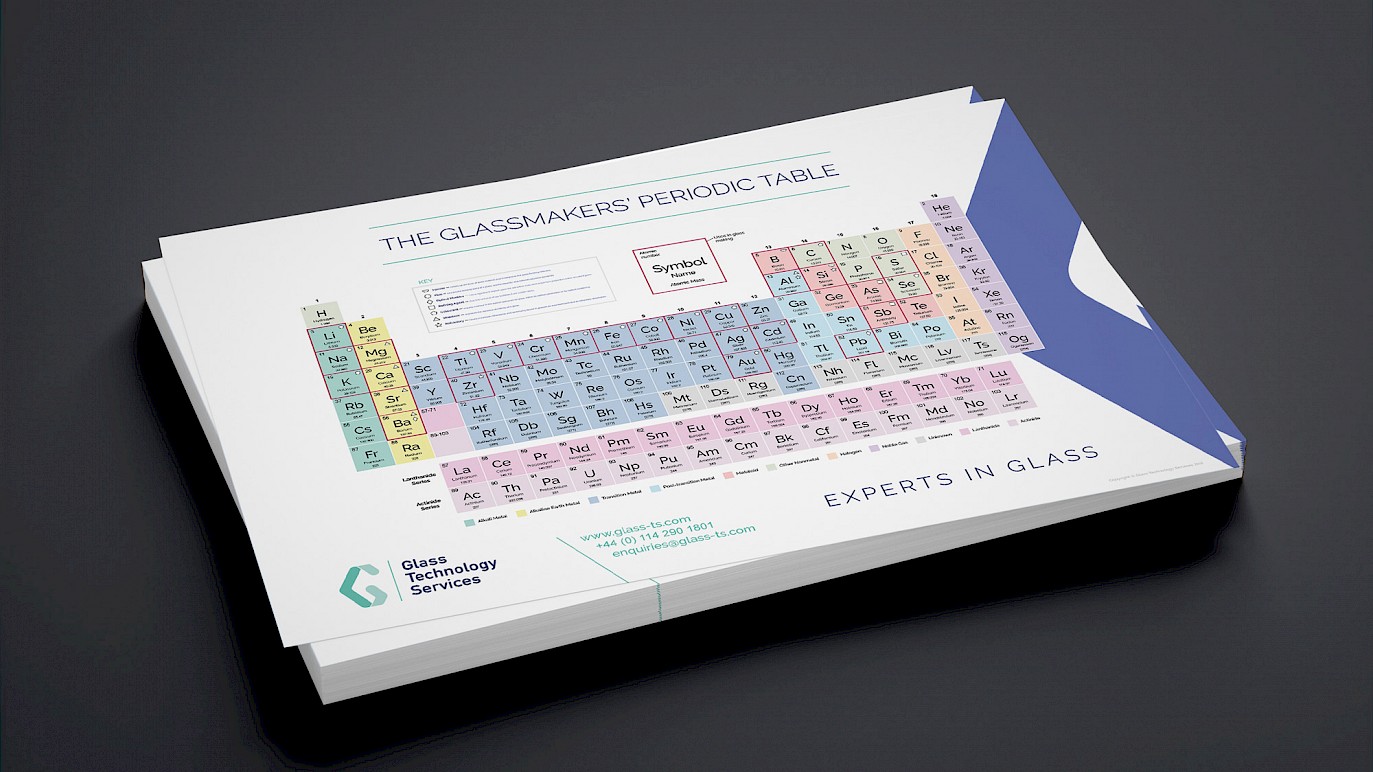This project aimed to assist the Russian industry in developing and implementing a glass recycling scheme in Russia.
The main objective of the assignment was to develop a road map for the establishment of a glass collection and recycling system in the Russian Federation to reduce waste and increase energy efficiency of glass packaging production; as well as to outline the steps required to establish such a system. It included an assessment of the existing institutional capacity and the need for the establishment of an adequate infrastructure. The project team worked with industry representatives and relevant government agencies with the capability to implement such a system.
Project partners
- British Glass
- COWI
- SKM Enviros
Further Information
A consortium of international glass industry and environmental consultants from British Glass, Glass Technology Services, COWI and SKM Enviros undertook a study into the market for glass recycling in the Russian Federation on an assignment for the European Bank for Reconstruction and Development. The overall objective of the project was:
"to assist industry in developing and implementing a glass recycling scheme in Russia. The main objective of this assignment is to develop a road map for the establishment of a glass collection and recycling system in the Russian federation to reduce waste and increase energy efficiency of glass packaging production; as well as to outline the steps required to establish such a system. This will include an assessment of the existing institutional capacity and the need for the establishment of an adequate infrastructure. The consultant will work with industry representatives and ultimately relevant government agencies with the capability to implement such a system."
The project was split into 3 phases this report summarises each phase. Detailed findings are available in the individual phase reports.
The Russian Federation is committed to a programme of improved environmental action including that of waste management. It seeks, where practical, to harmonise national legislation by learning from the best international examples. The glass manufacturing industry is a significant user of raw materials and energy. The container (bottles and jars for food and beverage containment) glass manufacturing process is such that it can, with little difficulty, recycle glass recovered from the domestic waste stream. Glass suffers no loss in quality in being remelted and reformed into new containers. Glass recycling has several environmental benefits, including:
- No new quarried raw materials are required if new glass is remade from recycled glass;
- Requires less fuel (energy) to remelt recycled glass than it does to produce glass from virgin raw materials, hence less CO 2 from combustion;
- Carbonates released during the melting process from the raw materials also liberate the Green House Gas (GHG) CO? during mineralogical transformation; such non fuel associated gases normally being referred to as “process CO 2 ”.
In order to maximise these benefits the glass returned to the factory must be relatively free of contamination e.g. metals, plastics, food waste, bricks and stones. In practice this means putting in place a dedicated collection system for glass. Establishing and maintaining an effective collection and recycling system is by necessity a major undertaking; involving significant costs. Glass collection and recycling systems are already commonplace in many countries indicating that viable economic models exist. One of the inherent advantages of glass, namely that it is made from low cost and plentifully available raw materials, means that recycled glass (cullet) must also compete in price in that market. Therefore recycled glass will never command the high prices that are able to drive the recycling process for materials such as steel and aluminium. Other drivers are usually needed and Governmental pressure is now increasingly common in many countries. Governmental “incentives” may include such measures as recycling targets or mandatory deposits on drinks containers whilst “disincentives” or indirect drivers may include punitive landfill tax and putting a charge on CO 2 emissions through financial instruments such as carbon taxation or trading.
The lack of clear policy and direction from central and regional authorities is seen as a major barrier to any recycling initiative. Investment in recycling initiatives will only be forthcoming when some degree of certainty regarding revenue from indirect environmental drivers is provided to potential investors.
Phase I concluded that: To be viable the benefits of a glass recycling scheme must more than offset the running costs.
Having considered the above factors in the context of the current situation in the Russian Federation, the authors proposed a collection system linked with other recyclable material collection as is common in many countries. The potentially higher revenues from the sale of materials such as plastic and aluminium may make the glass recycling system more financially viable and self-sustaining. The use of regulatory instruments similar to those employed in other countries will also be required to make recycling more attractive. Such instruments will include the taxation of landfilling as a method of waste disposal control and the use of trading certificates to encourage environmental improvement.
Findings from the review of International Recycling Schemes
During Phase II the glass recycling schemes in countries across the world were studied. These studies concluded that the following elements are crucial to the success of glass recycling schemes:
- Education, Outreach and Public awareness- these are essential to ensure recycling schemes have high participation rates and the glass collected is of high quality;
- Local champions/managers, having a known person overseeing a recycling scheme in a particular building or area encourages participation and reduces abuse of recycling facilities. It also potentially provides employment opportunities;
- Regulations and incentives- in countries like the Russian Federation where there is no current culture of recycling the use of regulation and/or incentives are necessary to encourage participation;
- Convenience - for recycling schemes to be successful it is critical that they do not involve excessive work for the householders, the containers must be close to residences without occupying too much space and segregation procedures must not be complicated;
- Early segregation of different recyclable materials - in order to minimise contamination and maximise revenue recyclable materials should be separated as early as possible in the collection process, ideally by the householders; and,
- Producer responsibility - the majority of international schemes place responsibility on the packaging supply chain to arrange and fund recycling schemes either directly or via membership of “green dot” compliance schemes.
For a successful recycling scheme to operate in the Russian Federation a wide range of stakeholders will need to be engaged. Depending on the specific scheme these will include:
- Municipalities
- Federal agencies
- Legislative bodies including the Customs Union (Russia, Belarus, Kazakhstan)
- Waste/recyclables collectors and transporters
- Operators of landfills
- Material Processors
- Housing Associations
- Supermarkets
- Hospitality establishments and organisers of major events
- Operators of street kiosks
- Suppliers of equipment (e.g. for collection of bottles in supermarkets, for treatment of glass waste)
- Brand owners
- Third sector (NGOs and charitable organisations)
- Glass manufactures and other cullet users
These organisations must be involved in the process of setting up the recycling scheme from an early stage.
Proposed collection methodologies
Five different collection methodologies have been proposed and hypothetical case studies created. A simple in house spread sheet model has been used to compare these scenarios.
These scenarios are hypothetical and several assumptions have had to be made about costs to carry out the modelling but the following general conclusions can be drawn. The authors are however aware of these limitation and modelling on a local level will be required when evaluating potential pilot schemes.
From the results of the model it is evident that the bring bank system offers the lowest cost per tonne for collection and processing whilst the kerbside systems give the highest price per tonne. This is to be expected as the bring bank system has the lowest manpower requirement and the kerbside system has the largest need for personnel. Collections from the hospitality sector also offer potential for a viable collection scheme and is only slightly more expensive than the bring bank scheme.
The costs of recycling schemes produced by the model are in the correct range compared to reported costs from international recycling schemes and are therefore considered by the authors to be suitable for comparison purposes. However, before any decisions are made to progress to trials or make investment in a recycling scheme more specific values and prices should be used to check the viability of the proposed system.
This study has determined that there is a potential opportunity for the introduction of an effective glass recycling scheme in the Russian Federation. The project culminated in a workshop held in Moscow with stakeholders from the glass supply chain. Feedback from stakeholders was generally favourable and there is a will amongst the organisations questioned to set up pilot schemes to test the viability of glass recycling in the Russian Federation. More information can be found in the summary report which is available in Russian and English.
Outcomes
The project provided a comprehensive summary of the historic and current situation for glass recycling in the Russian Federation. Using examples for around the world recommendations were made to develop future recycling schemes across the nation including social, environmental and economic benefits. Relevant stakeholders were engaged and the findings were presented to them generating momentum to implement a scheme.

